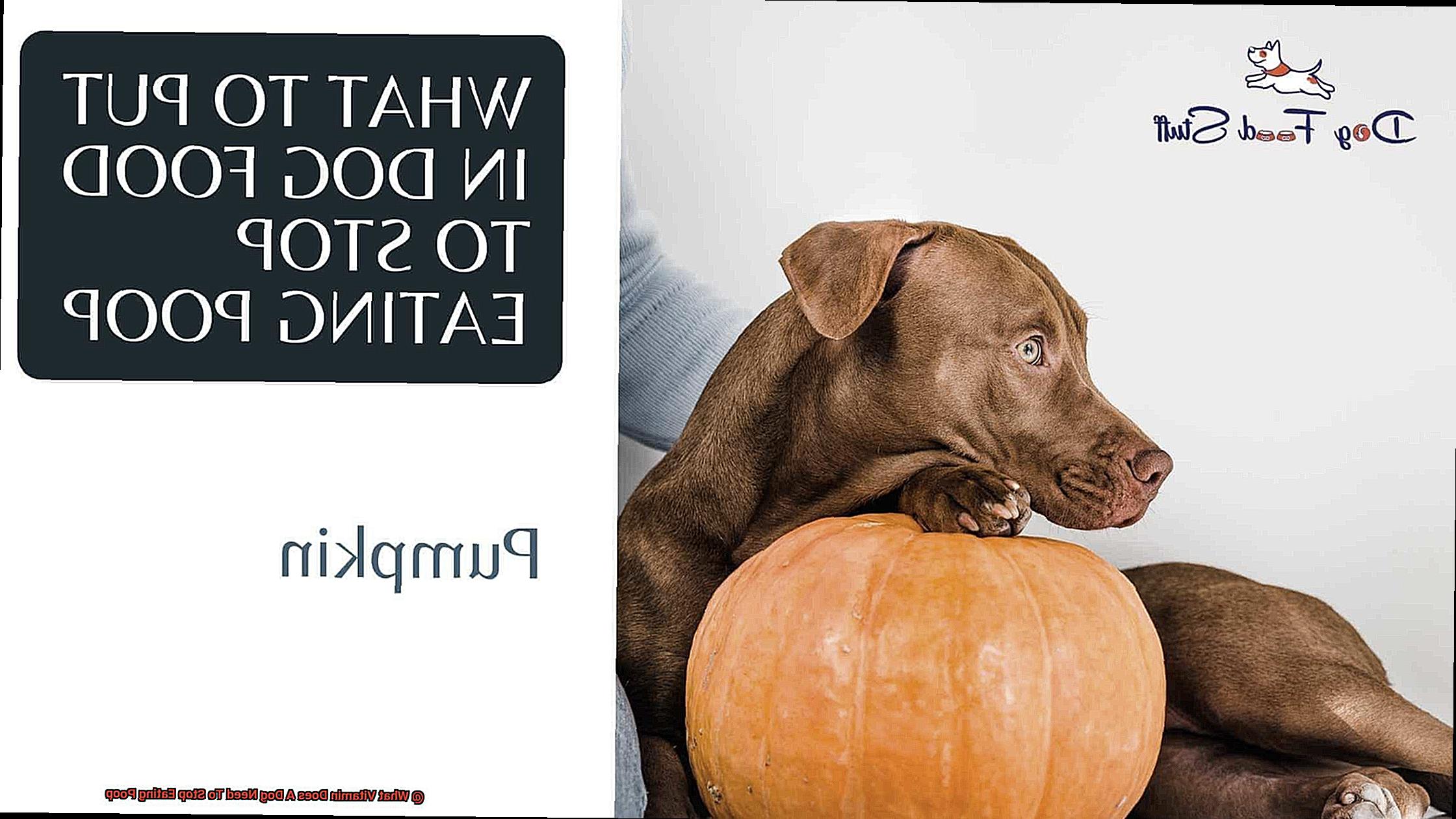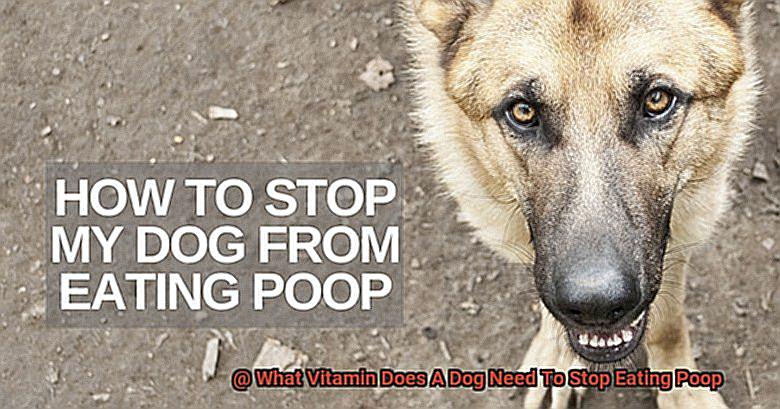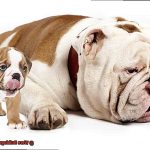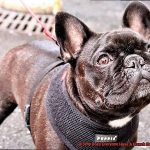What Vitamin Does A Dog Need To Stop Eating Poop?
Picture this: you’re walking your dog in the park, enjoying the fresh air and stunning views, when your beloved pup suddenly stops and starts munching on their poop.
Correct, but disgusting? This is unfortunate, but it is a common occurrence among dogs that can make many pet owners feel ill and ashamed.
However, fear not; there is a simple remedy—a vitamin that can help your dog avoid eating poop. Yes, you heard me correctly—a vitamin.
So, please sit back, relax, and let’s get to the bottom of this discussion (pun intended).
What Vitamin Does A Dog Need To Stop Eating Poop?
Contents
- 1 What Vitamin Does A Dog Need To Stop Eating Poop?
- 2 Understanding the Link Between Vitamin Deficiencies and Coprophagia
- 3 The Role of Vitamin B1 in Stopping Dogs from Eating Poop
- 4 Other Vitamins That May Help with Coprophagia in Dogs
- 5 How to Supplement Your Dog’s Diet with Vitamins
- 6 Tips for Reducing or Eliminating Coprophagia Behavior in Dogs
- 7 Consultation with a Veterinarian: Why It’s Important Before Making Changes to Your Dog’s Diet
- 8 Conclusion
Is it unusual for a French Bulldog to eat their poop? This behavior as a dog owner can be not only offensive but also troubling. Although this habit has many reasons, experts have outlined vitamin B as a potential alternative. Why is this particular vitamin so crucial in preventing dogs from groping? Let’s dig in and find out what you want to hear.
What is Vitamin B?
Vitamin B, or thiamine, is a water-soluble vitamin that plays a significant role in the body’s metabolism and nervous system function. It helps convert food into electricity, supports proper nerve function, and aids in producing red blood cells. This essential vitamin is present in meat, fish, and whole grains.
Why is vitamin B recommended to stop dogs from eating poop?
A thiamine deficiency can cause various health issues in dogs, including neurological and digestive disorders. These conditions may have contributed to coprophagia or the eating of poop. You will, therefore, be able to fix the root of your dog’s behavior by supplementing his diet with vitamin B1.
In addition, ensuring your dog has proper nutrition and a well-balanced diet is crucial to preventing colitis. If a dog’s diet lacks essential nutrients, they may need to eat their feces to compensate for their deficiencies. Adding a vitamin B supplement will help ensure your dog gets all the vital nutrients.
But does vitamin B work?
While vitamin B may help reduce a dog’s appetite for poop, it is not a guaranteed solution. Each dog may have different reasons for participating in this behavior, and it is essential to address the underlying causes. Finding out whether vitamin B or other medications are appropriate for your dog’s specific needs can be aided by consulting with a veterinarian.
What other vitamins can help with Coprophagia?
Vitamin B6 and vitamin E are among the many vitamins that have been suggested to support coprophagia. Vitamin B6 helps absorb other vitamins and minerals in the body. In contrast, vitamin E is essential for maintaining healthy skin and coat, which can also influence a dog’s overall well-being and behavior.
Understanding the Link Between Vitamin Deficiencies and Coprophagia
If you own a French Bulldog, you may have experienced the agony and disgust of watching them eat their feces. This behavior, also known as coprophagia, is common among dogs and can be attributed to several factors, such as boredom, stress, and medical disorders. However, did you know vitamin deficiencies could also contribute to this unhealthy behavior?
In particular, B vitamins and vitamin D have been found to be potential causes of coprophagia in dogs. These essential vitamins are vital in maintaining a dog’s overall health and well-being, including digestion and metabolism.
Vitamin B Deficiency: A Possible Culprit for Coprophagia
A dog’s proper digestive function and metabolism require vitamins B12 and B6. If a dog does not get enough B vitamins in their diet, they may suffer from digestive problems such as bloating, gas, and diarrhea, which can lead to coprophagia as a way to relieve pain.
In addition, a deficiency in these vitamins may cause changes in the intestinal microbiome, leading to a bacterial imbalance that can cause coprophagia. Therefore, it’s crucial to ensure that your French Bulldog’s diet contains sufficient amounts of B vitamins to avoid this behavior.
Vitamin D Deficiency: Another Possible Trigger for Coprophagia
Vitamin D is responsible for a dog’s bone and muscle growth. Its deficiency can lead to muscular disorders that can result in coprophagia. This is because dogs with musculoskeletal disorders may have difficulty removing waste properly, causing anxiety and desiring to eat their feces.
Finding out whether your dog’s coprophagia is related to vitamin deficiencies or other causes is crucial. A thorough examination and blood test will help identify nutrient deficiencies and create a customized treatment program.
Preventing Coprophagia with Proper Nutrition and Supplementation
Although treating any underlying medical condition or behavioral issue is critical to preventing coprophagia, supplementing your French Bulldog’s diet with the appropriate vitamins can also help avoid this behavior. While high-quality dog foods that contain all essential vitamins can be helpful, if your dog’s diet is deficient in specific vitamins, a veterinarian’s supplementation can help solve any deficiencies.
The Role of Vitamin B1 in Stopping Dogs from Eating Poop
You may have noticed your furry friend indulgent in the painful habit of eating poop as a French Bulldog owner. This behavior, also known as coprophagia, can be troubling and even frustrating for pet owners. Nonetheless, did you know there could be a correlation between this behavior and a vitamin B1 deficiency?
In this section, we will go deeper into the role of vitamin B1 in preventing dogs from consuming feces and how it can improve your French Bulldog’s overall well-being.
What is vitamin B1 and why is it important for Dogs?
Vitamin B1, also known as thiamine, is a water-soluble vitamin that plays a significant role in a dog’s nervous system. It helps convert carbohydrates into energy and maintains a healthy metabolism. Dogs that lack thiamine are likely to suffer from hunger, weight loss, and weakness. They may also experience neurological disorders in severe cases.
How Can a Thiamine Deficiency Lead to Coprophagia?
An unbalanced diet is a potential cause of thiamine deficiency in dogs. This can happen when dogs are fed either raw or canned diets that lack all of the essential nutrients. Some commercial dog foods may need to be properly balanced, resulting in specific vitamins and minerals deficiencies.
If dogs do not have thiamine, their bodies may try to compensate by seeking other sources of this vitamin. They may eat their waste or even the feces of other animals as a result.
How Can You Ensure Your Dog Gets Enough Vitamin B1?
The best way to prevent coprophagia and ensure that your dog receives adequate amounts of vitamin B1 is to feed them a high-quality dog food designed to satisfy all their nutritional requirements. Find brands that use high-quality ingredients and have undergone validation to ensure proper balance and nutrition. As well as determining whether your French Bulldog needs additional vitamin B1 supplements, consulting with a veterinarian or canine nutritionist can help determine if your French Bulldog needs extra vitamin B1.
Other Benefits of Vitamin B1 for Dogs
Vitamin B1 helps with coprophagia, but it also has other dog benefits. It supports digestion, promotes healthy skin and coat, and improves the immune system. Your French Bulldog can fight diseases and infections more by having a healthy immune system.
Other Vitamins That May Help with Coprophagia in Dogs
As a French Bulldog owner, you may have stumbled upon your furry companion munching on their own or another dog’s poop. This behavior, which is also known as coprophagia, can be a source of anxiety and confusion for dog owners. However, did you know that specific vitamins can aid in preventing and reducing coprophagia in dogs?
This article’ll explore how specific vitamins, such as vitamin B, probiotics, vitamin A, and zinc, can effectively reduce coprophagia in dogs. So, grab a cup of coffee, and let’s avoid having our French people dig into poop.
Vitamin B: The Missing Link in Coprophagia Prevention
Vitamin B, also known as thiamine, is required for dogs’ healthy digestive systems. It plays a significant role in the absorption of nutrients, which can influence a dog’s stool’s taste and odor. A vitamin B deficiency may lead to changes in stool composition, making it more available for dogs to eat.
To ensure your French Bulldog gets enough vitamin B, add vitamins or fruit rich in this nutrient. Fish, turkey, and eggs are all excellent sources of vitamin B.
Probiotics: Balancing the Gut for Happy Tummies
Probiotics are beneficial bacteria that live in the gut and support digestion and immune function. For dogs, a healthy gut microbiome is essential to avoid coprophagia. Stress, antibiotics, or a poor diet can alter the balance of good bacteria in the gut, increasing poop-eating behavior.
Supplementing with probiotics can help restore balance and reduce the temptation to eat feces. You can buy probiotic supplements made specifically for dogs at pet stores or consult your veterinarian for recommendations.
Vitamin A and Zinc: The Dynamic Duo for Healthy Skin and Coat
Vitamin A and zinc play a vital role in dog skin and coat. A vitamin deficiency can cause dry, itchy skin, which may result in excessive licking and chewing at their fur. In some situations, this behavior may have extended to evicting feces to relieve anxiety.

How to Supplement Your Dog’s Diet with Vitamins
Although there are various reasons why dogs participate in this behavior, one way to solve it is to supplement their diet with vitamins.
Dogs, like humans, need vitamins and minerals to stay healthy. A balanced diet is vital, but some dogs may require additional supplements to meet their nutritional needs. These vitamins can also aid in digestion and overall well-being.
Vitamin B is one of the most valuable vitamins for dogs. It helps to maintain a healthy digestive system and reduces the desire to eat poo. Vitamin B can be found in high-quality dog food. Still, if your dog has a deficiency, adding a supplement specifically made for dogs may be necessary.
Vitamin D is another vital ingredient for dogs. This vitamin aids in calcium absorption, essential for healthy bones and teeth. Vitamin D deficiency can lead to poor bones and teeth, making it difficult for your dog to digest food properly. Vitamin D can also support your dog’s immune system, making them less susceptible to illnesses that may cause digestive problems.
Before adding any supplements to your dog’s diet, speaking with a veterinarian is best. They can advise on the correct dosage, potential interactions with other medications, and potential side effects. They will also determine if your dog has any vitamin deficiencies contributing to their poop-eating habits.
Not all vitamins are suitable for dogs, so it’s essential to consider factors such as age, breed, and health problems before supplementing. In addition, make sure your dog is getting enough calories from their diet before adding any supplements.
Tips for Reducing or Eliminating Coprophagia Behavior in Dogs
Although this behavior may seem gross and repulsive, it is a natural instinct for dogs. However, excess coprophagia may be a symptom of an underlying health condition or nutritional deficiency. I’m here to share with you the benefits of reducing or eliminating coprophagia in dogs and provide tips for reducing or eliminating this behavior through a well-balanced diet with essential vitamins and supplements.
First and foremost, let’s explore the potential causes of coprophagia in dogs. It could be due to boredom, fear, or even medical conditions. However, a significant factor often ignored is a deficiency in particular vitamins and minerals. This is where a varied diet with essential vitamins and supplements comes into play.
Vitamin B is one of the few vitamins shown to help reduce coprophagia activity. This complex vitamin includes B vitamins such as thiamine, riboflavin, niacin, and biotin, all necessary for a dog’s overall health and well-being—vitamin B aids in proper digestion and metabolism, which can significantly reduce coprophagia symptoms.
Vitamin D is another essential mineral that can aid in coprophagia. Not only does it promote healthy bone growth and immune function, but it also plays a role in regulating appetite and behavior in dogs. A vitamin D deficiency can cause your dog strange cravings, including eating poop. Therefore, ensuring your dog has enough vitamin D can help reduce coprophagia symptoms.
However, remember that although these vitamins may help reduce coprophagia symptoms, they are not a cure-all. Before making any changes to your dog’s diet or providing them with vitamin supplements, it is always best to consult a veterinarian. Your veterinarian will perform blood tests to see if your dog is deficient in any vitamins and make recommendations on the correct dosage and type of supplements to give your dog.
In addition to ensuring your dog is getting enough vitamins, there are other things you can do to help reduce or eliminate colitis. These include keeping your dog’s living area clean and free of feces, supervising them when they are outside, and giving them plenty of mental and physical stimulation.
Consultation with a Veterinarian: Why It’s Important Before Making Changes to Your Dog’s Diet
Veterinary Consultation: Why It’s Important Before Making Changes to Your Dog’s Diet, It’s Vital
We want nothing but the best for our furry friends as pet owners. We continue to provide them with the best care and nutrition to keep them healthy and happy. That’s why when we see strange behaviors such as coprophagia or eating feces, it can be troubling and even offensive. Our first instinct may be to try and fix the behavior ourselves by adding vitamins or supplements to our dog’s diet. However, working with a veterinarian should always be the first step before changing your dog’s diet.
Why is it so important to speak with a veterinarian? Let’s take a closer look at this.
Rule Out Underlying Health Issues
Various conditions, including malabsorption or parasites can trigger Coprophagia. Before fixing the behavior with vitamins, these underlying health conditions must be ruled out. A veterinarian can perform a thorough physical examination and run the appropriate tests to determine if there are any contributing factors to coprophagia.
Personalized Recommendations
Every dog is remarkable, with its own unique needs and health history. What might be helpful for one dog may not work for another. That’s why consulting with a veterinarian is so important since they can make personalized recommendations for your dog based on their needs. They can also consider any pre-existing medical conditions or allergies affecting their diet.
Expert Knowledge in Animal Nutrition
Veterinarians receive extensive training in animal nutrition, making them the best way to determine whether your dog’s diet lacks any essential vitamins or minerals that may be contributing to their poop-eating habits. They can also help you choose the right products for your dog’s specific needs and ensure that any changes made are safe and effective.
Not All Dogs Are the Same
It’s vital to note that not all dogs will respond to the same vitamin supplements. Some may need a specific brand or dose, while others may not need any at all. Consulting with a veterinarian can help narrow down the best options for your dog and save you from wasting time and money on trial and error.
Also Read: Why Is My Frenchie Afraid of Other Dogs?
Conclusion
In conclusion, our furry friends deserve the best care and attention to keep them happy and healthy. It can be disheartening to see our dogs participating in coprophagia, a condition in which dogs eat their poop. However, there is still a simple solution to this problem: vitamin B.
Vitamin B plays a significant role in ensuring a dog’s overall health and well-being, as well as their digestion and metabolism. A deficiency in this essential vitamin can result in various health disorders that may lead to coprophagia. You can fix your dog’s behavior by adding vitamin B to his diet.
Before making any changes to your dog’s diet or providing them with supplements, speaking with a veterinarian is vital. They can help identify underlying health conditions and make personalized recommendations based on your dog’s needs.
Aside from vitamin B, other nutrients such as probiotics, vitamin D, and zinc have been used to reduce coprophagia in dogs. However, it is also important to note that each dog may have different reasons for participating in this behavior. Therefore, it’s vital to address any underlying issues.
In addition, a proper diet and a well-balanced diet are two key factors in preventing coprophagia. We can help our dogs avoid snacking on their poop by ensuring they get all the essential nutrients they need from their diet and adding supplements as required by a veterinarian.
So, next time you take your dog for a walk in the park, you’ll enjoy the fresh air and stunning views without worrying about them indulging in their feces.




